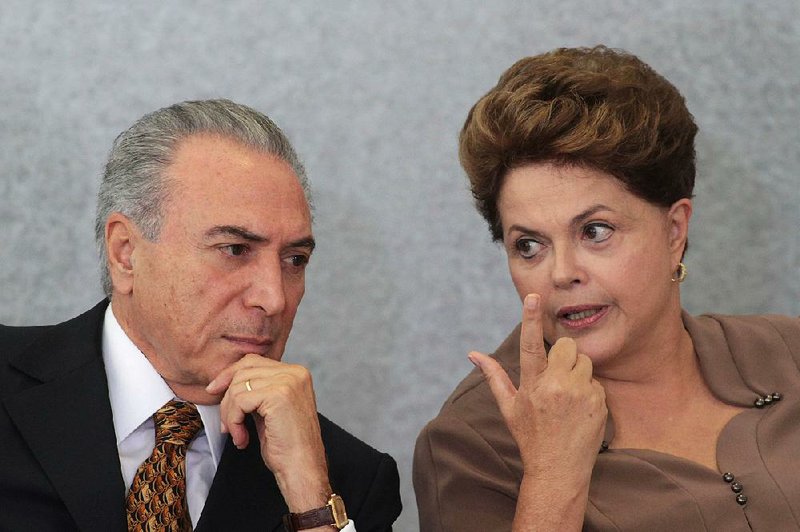RIO DE JANEIRO -- Just days after the closing ceremony of the Rio Olympics, Brazilian senators are about to decide whether to permanently remove President Dilma Rousseff from office, the climax of a monthslong political battle.
The Summer Games were a welcome distraction for many Brazilians angry over accusations of corruption and an emerging economy that has gone into severe recession. Street parties broke out when Brazil's soccer team beat Germany to win gold, a measure of redemption after being defeated 7-1 by the Germans in the World Cup semifinal two years ago.
With the Olympic bash over, "we return to the divisions, to the fighting," said Fabiano Angelico, a political consultant based in Sao Paulo.
Today, the Senate begins the final phase of the trial of Rousseff, who was suspended in May for allegedly breaking fiscal rules in managing the federal budget. Several days of deliberations, including an address to lawmakers by Rousseff herself, will culminate in a vote expected next week.
Rousseff's opponents argue that she used sleight of hand budgeting to mask the depth of government deficits and ultimately exacerbated the growing economic crisis, which has led to 10 percent inflation, daily announcements of layoffs and repeated credit downgrades from ratings agencies.
Brazil's first female president denies any wrongdoing, pointing out that previous presidents used similar accounting measures. Rousseff alleges that something more nefarious is at play: a bloodless "coup" by corrupt legislators who want to oust her so they can water down a wide-ranging investigation into billions of dollars in kickbacks at the state oil company, Petrobras.
Much of the alleged graft happened over the 13 years that Rousseff's left-leaning Workers' Party has been in power. Several businessmen and top politicians have been jailed, including some connected to Rousseff's government.
In fact, the inquiry has blown the lid on a political culture of corruption that spans the ideological spectrum: About 60 percent of lawmakers in the Senate and lower house are being investigated for various crimes, many related to graft and the Petrobras scandal.
Rousseff has never been personally implicated, but her detractors say she must have known what was happening and bears responsibility. She refused to block the investigations even as she paid a steep political price through her impeachment, saying it is a process that Brazil badly needs to go through.
The interim government that stepped in for her also has been stung, with three Cabinet ministers forced to resign right after taking office because of corruption allegations. Acting President Michel Temer, who was Rousseff's vice president and is known as a behind-the-scenes deal-maker, has been pointed out in bribery accusations by witnesses who have reached plea deals in the Petrobras case, although he has not been charged with any crime.
The result has been widespread popular disgust and anger at both Rousseff and Temer: A national poll by Datafolha last month found that 62 percent of respondents favored holding new elections rather than keeping either one as president.
A Section on 08/25/2016
